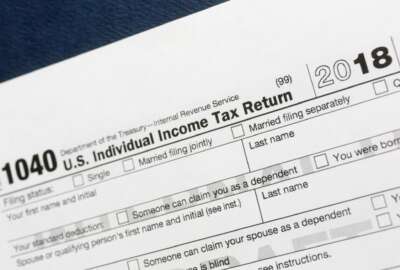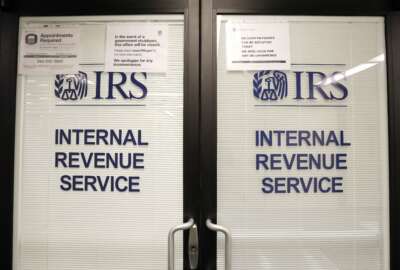
Shutdown touches pay and taxes
The timing of the third shutdown of 2018 and the implementation of 2017 tax reform created major paycheck and cash flow problems for tens of thousands around th...
Whenever there’s a major government event, either a happy one such as a celebration or a stupid one like a shutdown, somebody has to clean up. It’s usually that somebody works for the government, somebody like you.
The most recent and longest (35 days) “partial” shutdown denied roughly 800,000 people getting their paychecks on time, whether or not they were forced to work or stay home. The country will be months recovering from the shutdown and its real price tag for work not done and things delayed is anybody’s guess. Expect a very big number with plentiful zeroes and nobody can argue with you.
What is for sure is because of the timing of the third shutdown of 2018 — and first of 2019 — created major paycheck and cash flow problems for tens of thousands around the nation, not to mention the merchants who sell them food, clothes, or provide transportation and entertainment.
December 2018 paychecks, that won’t be processed and deposited until this month or later, mean less 2018 income. That’s less income subject to reduced deductions which employers and employees often didn’t know until as late as February. Many of the new 2018 tables issued and published early last year (because of tax reform) were incorrect. One Washington, D.C.-area certified public accountant who handles tax returns for a lot of feds has a recorded message indicating you can call back anytime day or night “because I am here (at the office) forever.”
Because the controversial tax law was signed Dec. 22, 2017, and took effect Jan. 1, 2018, some received more take-home pay. But in many cases not that much more, so that they adjusted their 2018 withholding, usually by lowering it, to allow them to continue to get refunds similar to those in past years. What got lost in the translation is while tax rates dropped so did tax deductions.
Newspapers around the country are filled with stories about startled taxpayers accustomed to getting substantial refunds or credits in past years who owe money this time around generally because of the drop in tax deductions and withholding.
Martin, a Maryland-based Transportation Security Administration employee said, “My tax guy was stunned by the confusion at the start of the year [2018]” when the IRS published new tables late, and then had to revise them. “I’m gonna owe this year for the first time in years. I’m at the point where [his accountant] says to pay what I can by the tax deadline. Then work out a payment plan for what I’ll owe because of the so-called reform. That’s after being forced to go to work for more than a month with no salary.”
The take away message today is when preparing your 2018 tax return be certain to project your 2019 federal and state income tax and compare it to your projected 2019 tax withholdings.
“This” he said, “is very definitely not what I signed up for, or what any of us expected or deserve.”
Nearly Useless Factoid
By Amelia Brust
Eleven years before Rosa Parks and Claudette Colvin’s own acts of defiance, Irene Morgan Kirkaldy was arrested for refusing to give up her bus seat to a white passenger in Saluda, Virginia. She was fined $100 for resisting arrest, which she paid, and $10 for violating the state’s segregated seating law, which she did not. With the help of NAACP legal counsel, including Thurgood Marshall, Kirkaldy’s case made it to the U.S. Supreme Court and was decided 6-1 in her favor — the bus was a Greyhound travelling to Maryland and therefore was considered interstate.
Source: The New York Times
Copyright © 2024 Federal News Network. All rights reserved. This website is not intended for users located within the European Economic Area.
Mike Causey is senior correspondent for Federal News Network and writes his daily Federal Report column on federal employees’ pay, benefits and retirement.
Follow @mcauseyWFED





